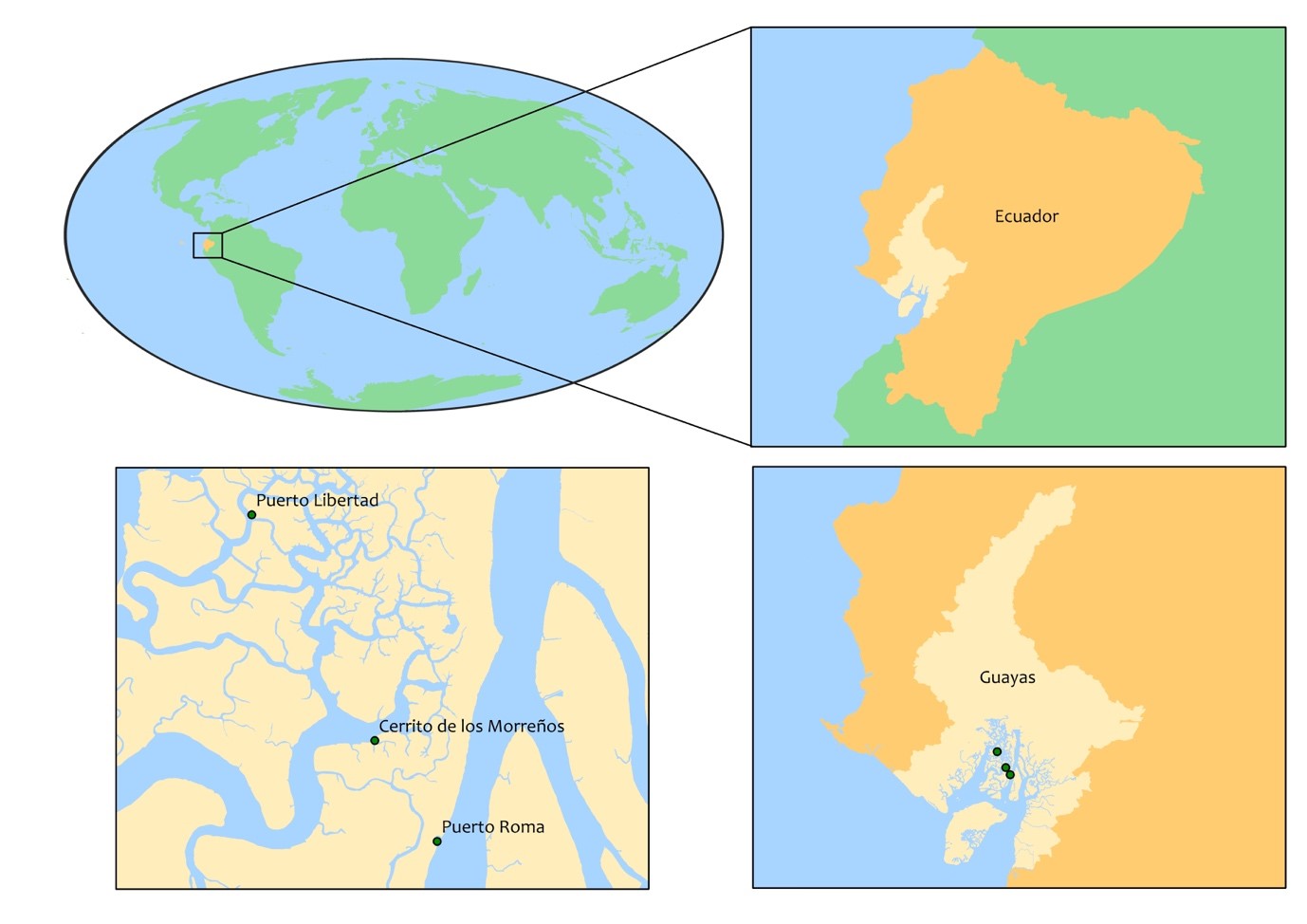As COVID-19 continues to change our daily lives and the world around us, we wanted to learn how it was affecting our members. We asked our community how have you, your research or the communities you work in been impacted by COVID-19? This is how COVID-19 affected three mangrove communities located in the Gulf of Guayaquil.
The volunteers from Fundación Cerro Verde in Guayaquil, Ecuador documented the practices of the mangrove communities they work in. One of these communities acted swiftly, drafting and implementing a “Contingency Plan” they designed to safeguard the lives and health of the inhabitants. Other communities revived the barter, a historical practice, to guarantee food safety during hard times, exchanging coastal products with other localities for fruits, oil and rice. And for the first time in their lives, they implemented their monthly community meeting via “Zoom” to be informed of the whereabouts of each part of the big concession area they live in. All of them are ancestral custodians of the Ecuadorian mangrove, under common property arrangements for sustainable use, which are tools for conservation and territorial organization. This story shows how the pandemic was an opportunity to act and show what resilience means to them.
Gulf of Guayaquil communities in the time of a Pandemic
Carlos Moscoso Monserrate[1], Wendy Chávez Páez[2], Federico Koelle [1] Fundación Cerro Verde and Universidad de Guayaquil. [2] Fundación Cerro Verde.
While the COVID-19 health crisis has hit everyone, there are some communities that have inspired us with their responsiveness and organization. This is the case of three mangrove communities, located in the Gulf of Guayaquil (figure 1): Puerto Libertad (population of ≈250), Cerrito de los Morreños (population ≈600), and finally Puerto Roma (population of ≈1.100). It should be noted that these 3 communities are part of the Municipality of Guayaquil, one of the most affected cities in the world during the pandemic (BBC News World, 2020). However, these rural communities have demonstrated a highly efficient and resilient management of the crisis.

Figure 1: Map of Ecuador, Guayas Province, and the Gulf of Guayaquil where Puerto Libertad, Cerrito de los Morreños and Puerto Roma are located. Designed by Melissa Moscoso.